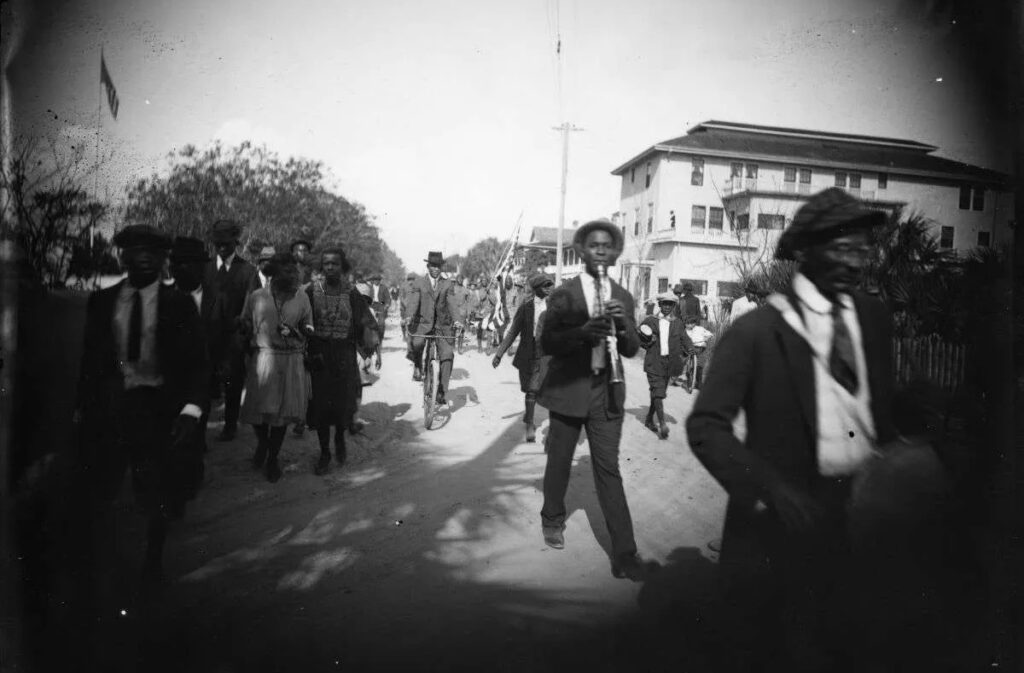Sometimes called America’s second Independence Day, Juneteenth is celebrated on June 19 and, this year, marks 160 years since the arrival of Union troops in Galveston, Texas, to announce that enslaved people were free. The day was first recognized as a national holiday in 2021 and is one of eight holidays observed by the University for faculty and staff.
Penn Today spoke with five specialists from the Penn Libraries who recommended materials, many of which are accessible through the Libraries, that educate, inspire, or—in the case of one cookbook—delight. A fuller guide to Juneteenth materials can be found on the Penn Libraries Juneteenth webpage.
“Juneteenth Texas,” co-edited by Francis Edward Abernethy, Carolyn Fiedler Satterwhite, Patrick B. Mullen, and Alan B. Govenar
Recommended by: Mercy K. Ayilo, Africana studies librarian
“Juneteenth Texas” is a 1996 collection of personal essays written from both Black and white perspectives. The essays describe aspects of African American folk culture in Texas, touching on genres of folklore—particularly through songs and stories, with references to performers like blues singer Lightnin’ Hopkins and street musician Bongo Joe.
“Freedom Over Me: Eleven Slaves, Their Lives and Dreams Brought to Life,” by Ashley Bryan
Recommended by: Lynne Farrington, director of programs and senior curator of Special Collections at the Kislak Center
Ashley Bryan draws from slave auction and plantation estate documents to create this paintings-and-poetry book, published in 2016, to interpret life on the plantation for elementary-grade children. The text is accessible through the Ashley Bryan Archive, containing hundreds of original works by the renowned storyteller and humanitarian, donated to Penn Libraries in 2019.
“On Juneteenth,” by Annette Gordon-Reed
Recommended by: John Pollack, curator of research services at the Kislak Center
Written by Pulitzer Prize winner and Harvard history and law professor Annette Gordon-Reed, “On Juneteenth” outlines the path to Juneteenth. The story begins in Texas and later describes the hardships of the Reconstruction and Jim Crow eras. The text, a compact 144 pages, also delves into Gordon-Reed’s own experience with racial injustice as a Texas native.
“Juneteenth: Exploring Freedom’s Stories,” by the Annenberg Public Policy Center
Recommended by: Nicholas Okrent, the Steven A. Lipman Librarian and Coordinating Bibliographer for the Humanities
Released in 2023, the Annenberg Public Policy Center, through the Annenberg Classroom and Civics Renewal Network, produced a 27-minute documentary film that explains the story of Juneteenth and explores the relationship between freedom and citizenship. The video is available to download for classroom use alongside lesson plans.
“Juneteenth,” by Marilyn Nelson
Recommended by: Nicholas Okrent
This poem, written by the daughter of a Tuskegee airman, was originally published in her 1990 poetry collection “The Homeplace.” The poem illustrates the contrast of joy upon the arrival of news of freedom with the horrors of slavery and continued atrocities that came after abolition.
“Lift Every Voice and Sing,” by James Weldon Johnson and J. Rosamond Johnson
Recommended by: Stephen Mantz, music technical services librarian
Widely considered the “Black national anthem,” the hymn was written as a poem by Johnson—a civil rights activist and later a Harlem Renaissance poet—in 1900. The hymn was first performed by a choir of schoolchildren at the segregated Stanton School in Jacksonville, Florida, and was most recently prominently performed at the opening of the 2025 Super Bowl.
“Watermelon & Red Birds: A Cookbook for Juneteenth and Black Celebrations,” by Nicole A. Taylor
Recommended by: Nicholas Okrent
Available for access at Van Pelt-Dietrich Library, Taylor puts to paper decades’ worth of personal food recipes she’s used to celebrate Juneteenth—nodding to the celebratory barbecues that took place in 1866. Recipes include everything from cookout fare to spice blends, hot sauces, and pickles.
Read more at Penn Today.





